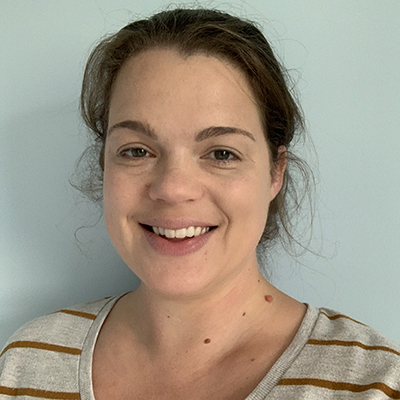Rachael Durrans

Rachael is a clinical and academic physiotherapist, currently working as a Senior Lecturer in Physiotherapy (BSc Hons Physiotherapy Programme Lead) and a PhD research student at The University of Huddersfield.
She is currently completing her PhD focusing on pressure ulcer prevention equipment and mobility. She has a particular interest in maintaining patients’ independence and mobility, while reducing de-conditioning and pressure risks. She is also privileged to be able to educate and inspire the next generation of physiotherapists and is passionate about increasing pressure prevention and management education and knowledge within allied health professionals and a multi-disciplinary approach to pressure care.
Clinically Rachael has worked in a variety of settings; stroke, respiratory, amputee, orthopaedics, MSK outpatients, rehabilitation and intermediate care. She specialised within inpatient therapy, focusing on medical, elderly, frailty and orthopaedic wards, along with the acute areas of A&E and MAU.
Free Paper and Poster Presentation (Research category) at The Society of Tissue Viability 2025 Conference
‘Bed Mobility Matters’: Do pressure mattresses impact bed mobility and independence? Comparing the perceptions of the individuals who use them and health care professionals
Abstract
Background – Pressure mattresses have been shown to aid in the prevention and management of pressure ulcers. Literature has highlighted negative impacts upon an individual’s physical, social and psychological wellbeing, including mobility. Despite this, there appears to be no further exploration around the specific impact’s mattresses may have upon mobility and independence.
This study forms part of a PhD and aims to explore perceptions of health care professionals (HCPs) and individuals who currently use, or have previously used pressure mattresses, on the impact they have upon bed mobility and independence.
Methods – Semi- structured interviews were completed virtually and in person between December 2022 – December 2024.
Recruitment was via social media, posters, word of mouth, online platforms and charity newsletters.
Participants were included if they met the following criteria;
- HCP’s – registered with their governing body. Treated/assessed at least 1 individual who used a pressure mattress.
- Anybody who had used a pressure mattress for over 24-hours in the last 10 years, in any clinical location. Able to speak and understand English. No cognitive impairments.
Results – 21 HCPs were interviewed, including 8 Nurses, 8 Physiotherapists and 5 Occupational Therapists, across a variety of clinical settings.
12 individuals who currently use or have previously used pressure mattresses were also interviewed.
Emerging findings suggest:
- Dynamic mattresses, primarily using air, have a negative impact upon bed mobility and independence compared to foam mattresses.
- Variation surrounding decision making around the use of pressure mattresses in practice.
- Variation in underpinning knowledge and understanding of mattress types.
- Variation of education for both staff and individuals using mattresses.
- Spinal cord injury rehabilitation units appear to be well supported in relation to education around pressure care.
Conclusion – Preliminary and emerging findings indicate that HCP’s and individuals who use pressure mattresses perceive dynamic mattresses have a negative impact upon bed mobility, functional independence and rehabilitation. Data analysed suggests there is a wide variation in relation to education and knowledge of HCP’s and patients surrounding the use of pressure mattresses. A more consistent approach to HCP and patient education is required to support decision making and appropriate use of all pressure redistribution systems; through this an equitable evidence-based approach to equipment selection will positively impact patient experience and quality of life.














